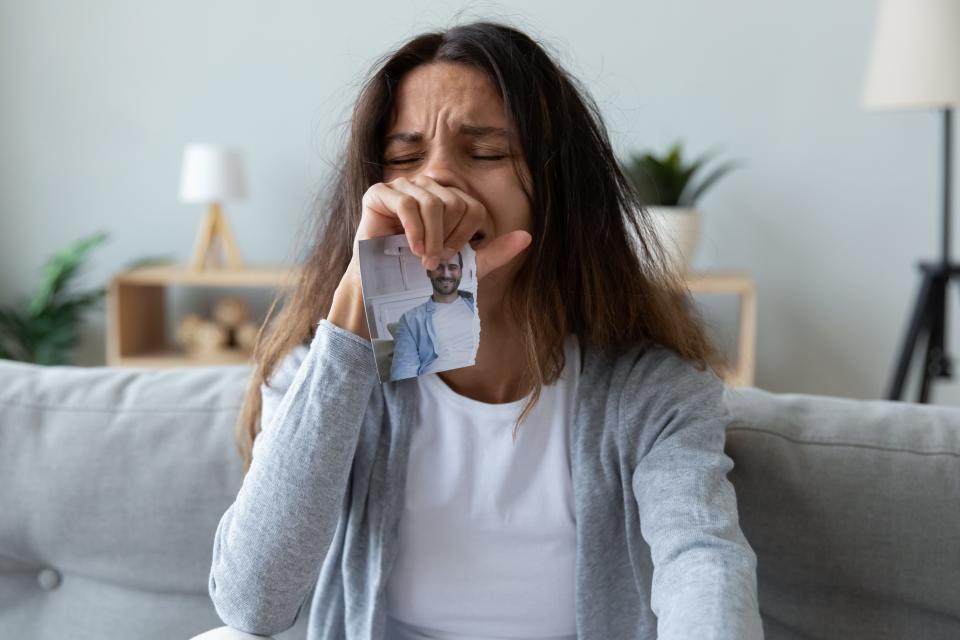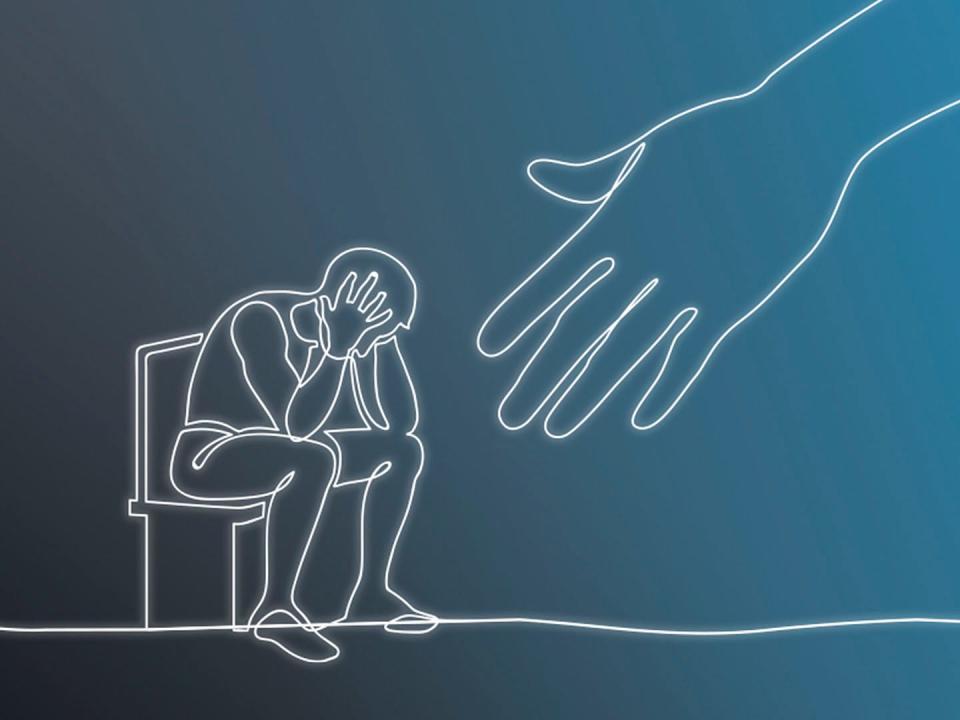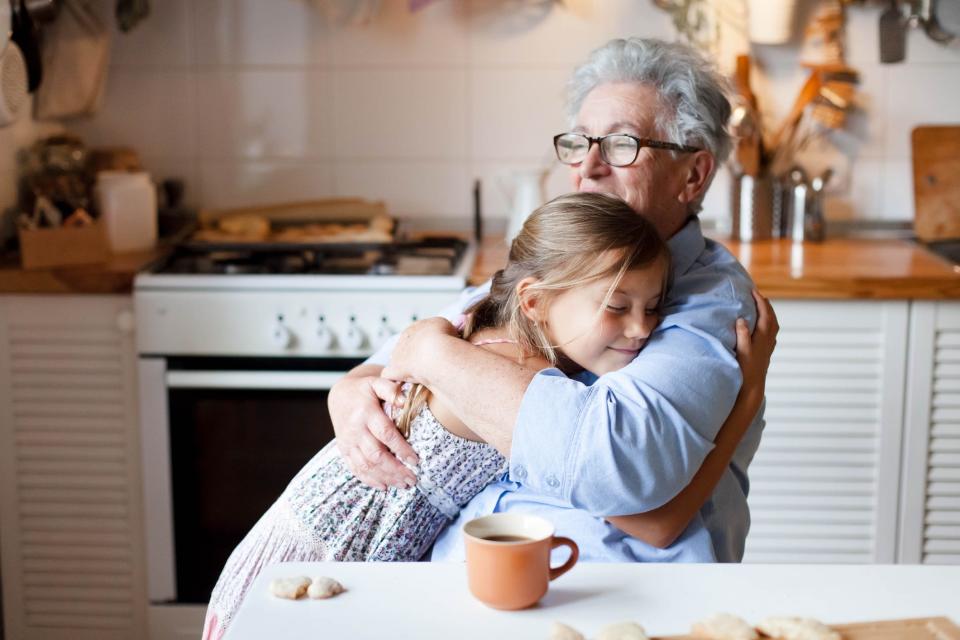Exclusive poll: Overwhelming majority says the US faces a mental health crisis
WASHINGTON – An overwhelming majority of Americans believe the U.S. is in the grips of a full-blown mental health crisis, according to a new USA TODAY/Suffolk University poll.
Nearly two years into the COVID-19 pandemic, which brought a rise in depression, anxiety, stress, addiction and other challenges, almost 9 in 10 registered voters believe there’s a "mental health crisis" in the nation, the poll found.
Though it may be rare to find such agreement in a nation divided over so many issues, mental health experts said they’re not surprised.
Shelli Avenevoli, deputy director for the National Institute of Mental Health, said mental health is top of mind for people. Even if someone isn't experiencing problems themselves, they know someone who is, she said.
“I think people are recognizing that this is more serious than just some mild feelings of depression and anxiety among a few people,” Avenevoli said. “This is pretty significant and pretty pervasive in the community.”
Jared Skillings, chief of professional practice for the American Psychological Association, said the poll shows that mental health is no longer just a discussion among academics or in elite policy circles.
“This is regular folks,” he said.
He hopes that widespread concern will provide the political pressure to go beyond the short-term fixes he said have been offered.
“We have not seen the kind of reform and the kind of really overt prioritization that we need to see,” Skillings said.
Last month, Surgeon General Vivek Murthy used the word “crisis” in calling for a “swift and coordinated response” to mental health challenges in children, adolescents and young adults.

In his advisory, a step reserved for major public health challenges that need immediate action, Murthy said the pandemic has had a “devastating” effect on the mental health of young people who had already been struggling at an alarming rate with feelings of helplessness, depression and thoughts of suicide.
“Life just feels very unstable for folks in that age range,” Skillings said. The ability to go to school, have a stable job and other basic life steps can no longer be taken for granted. Young people may also have had to deal with illness, or even death, in their family from COVID-19, he said.
Robert Caraballo, 21, a community college student from Massachusetts, described the past year as chaotic. After getting COVID-19 despite being vaccinated, Carabello felt as if he were at a breaking point.
“Mentally, it was awful,” said Caraballo, one of the respondents to the USA TODAY/Suffolk University poll.
In 2021, more people around the world Googled “how to maintain mental health” than ever before. Queries surged nearly 70% between April and May, according to Google.
Stress isn't just a state of mind: Your body is trying to tell you something
What is languishing? Alonely? A mental health glossary to explain what you're feeling

A survey in August by the American Psychological Association found many people were feeling overwhelmed by day-to-day struggles. Constant risk assessment, upended routines and uncertainty about where the pandemic is going can be exhausting, the group said.
Candice Walters, 44, a ticket broker from Utah, said she’s living in a constant state of wondering, “When’s the next shoe going to drop? What’s going to happen now?”
Although Walters was able to work more in 2021 after public events returned, she fears events could shut down again because of the spike in COVID-19 cases from the highly transmissible omicron variant.
“There’s just this constant cloud of not knowing,” she said.
The survey of 1,000 registered voterswas taken by cellphone and landline Dec. 27 to Dec. 30.
A majority of those surveyed also said poor mental health is primarily responsible for mass shootings, alcohol and drug addiction, and suicides.
The $1.9 trillion coronavirus relief package passed last March included billions of dollars to prevent and treat mental health and substance abuse disorders, including services offered through elementary and secondary schools.
“We could be just at the start of a major investment in mental health and suicide prevention in our country,” said Dr. Christine Moutier, chief medical officer for the American Foundation for Suicide Prevention.
But the nation’s fractured system of mental health care means money alone won’t fix the problems, Moutier said. Implementation is also important, and that can be uneven across a decentralized system, she said.
Am I OK? How to do a mental health check

One example is a long-standing effort to transition the National Suicide Prevention Lifeline from its current 10-digit number to a three-digit dialing code: 988. The goal, created by legislation passed in 2020, is to have quick-dial suicide hotline staffed by trained professionals 24 hours a day by mid-2022.
Right now, more than 2 million people a year call the lifeline, but most people looking for help call 911, and emergency dispatchers may lack the training and resources to properly respond.
The Biden administration is prioritizing the transition, a step Moutier praised. But only a handful of states have passed or introduced legislation to build their 988 systems.
“There will be effective actions, but probably not across the board, across all states,” Moutier said. “Or it will take more time in some.”
New Hampshire is using some of its federal pandemic funding to buy a private psychiatric hospital to expand services for children.
The need for inpatient mental health care for young people in that state has more than tripled since the start of the pandemic, according to the New Hampshire chapter of the National Alliance on Mental Illness.
Across all age groups, estimates suggest that only half of people with mental illnesses receive treatment, according to the National Institute of Mental Health.
“There are huge inequities in access to care,” said Avenevoli, the institute’s deputy director. “That's pretty much our predominant problem: the inability for all people to have equal access to high-quality, evidence-based care.”
America's mental health system has been inadequate and underresourced for decades before rising to the level of public awareness shown in the USA TODAY/Suffolk University Poll, said Rachel Garfield, a vice president at the Kaiser Family Foundation. She said it is “remarkable” that nearly 9 out of 10 adults now see mental health as a major concern for the country.
More young kids are killing themselves: The COVID-19 pandemic is making the problem worse

The pandemic’s exacerbation of mental health issues, combined with the increased public discussion, could create a window of opportunity to address a long-standing public policy issue, Garfield said.
In the Kaiser Family Foundation’s November tracking survey, more than half (53%) of adults said the pandemic has hurt their mental health, a rate that only slightly improved as more people were vaccinated against COVID-19. Women and younger adults have reported disproportionate effects.
David Paleologos, director of Suffolk's Political Research Center, who had not expected such a strong response to the mental health crisis question, said elected officials would be smart to take notice – both for the good of the public and for their own political health.
“It's really a no-lose issue for our politicians and political parties,” Paleologos said, “because of how strongly people across all parties believe that it's a crisis.”
More: The importance of finding a good therapist – and why it's so difficult
Maureen Groppe has covered Washington for nearly three decades and is now a White House correspondent for USA TODAY. Follow her on Twitter @mgroppe.
This article originally appeared on USA TODAY: Mental health: Americans see a crisis amid ongoing COVID pandemic

